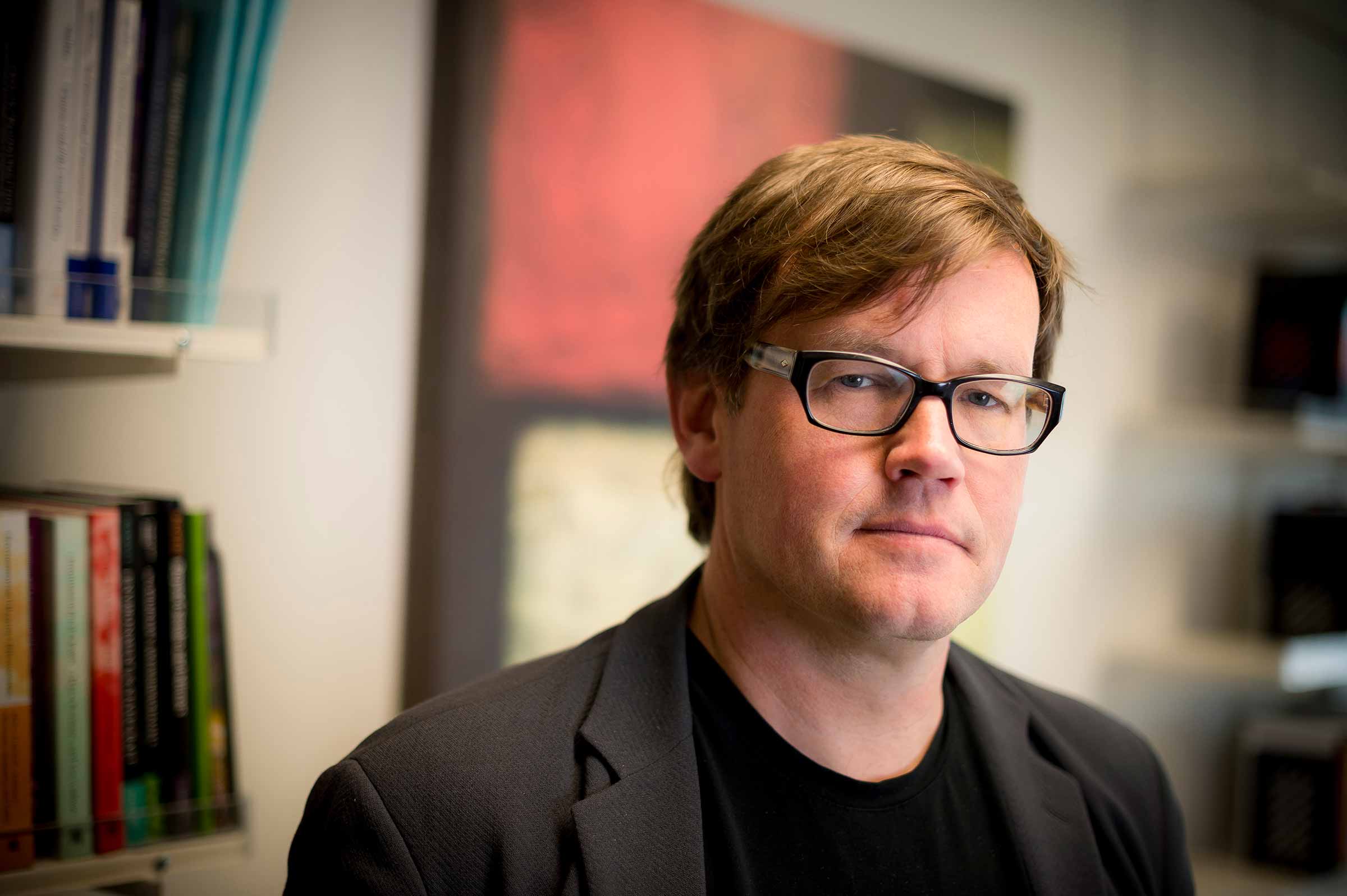By:
- Christine Clark
Published Date
By:
- Christine Clark
Share This:

David Victor. Photos by Erik Jepsen/UC San Diego Publications
Unlocking Global Warming Gridlock
Professor at School of International Relations and Pacific Studies develops strategies for policymakers to help mitigate climate change
David Victor, an internationally recognized leader in research on energy and climate change policy, has a message to policymakers around the globe: time is running out.
“The problem of climate change is getting worse, quickly,” said Victor, a professor at the UC San Diego School of International Relations and Pacific Studies. “There are lots of reasons for this—political gridlock central among them. Luckily, new policy strategies here in the U.S. and internationally can help to fix this.”
Victor is a leading contributor to the Intergovernmental Panel on Climate Change (IPCC), the United Nations-sanctioned international body that released its most recent report on mitigating climate change April 13.
In order to finalize and approve the report, Victor traveled to Germany over several weekends to draft the summary for policymakers and to get the report approved by government officials around the world. There are 195 country members of the IPCC.
The IPCC report revealed greenhouse gas emissions grew faster between 2000 and 2010 than the three previous decades despite policies designed to reduce emissions. As a result, the harms of climate change to the world’s ecosystems and to humans are becoming more apparent. Nevertheless, Victor said he remains optimistic about the future. “This can be a time when governments, grassroots organizations and the general population will act,” he said.
Victor will echo this message to the UC San Diego community on Tuesday, May 13, for the fifth annual Keeling Lecture, which is in memory of distinguished Scripps Professor Charles David Keeling’s life and invaluable contributions to climate science and Scripps Institution of Oceanography.
Victor is director of IR/PS’s Laboratory on International Law and Regulation and author of numerous books including his most recent, “Global Warming Gridlock: Creating More Effective Strategies for Protecting the Planet.”
A member of the IPCC for several years, Victor has made tremendous contributions to the intergovernmental body because of his dual understanding of the science behind climate change and how international and domestic public policy work.
Victor is the convening lead author of the IPCC’s Working Group III report “Mitigation of Climate Change.” In addition to playing a key role in writing the summary––a more-accessible part of the 2,000-plus-page report––he helped draft the opening chapter. His group’s work is the last in a multiple-component assessment, taken on every seven to eight years.
The summary and some of the key findings in the report serve as a guide and a wake-up call for governments, according to Victor.
“Polling data indicates that people increasingly acknowledge that climate change is caused by humans and yet they are still not willing to do very much about it,” Victor said. “What needs to happen is that we need to be willing to pay the extra cost. One of the main findings in this report is that we have the strategies at hand to start to control emissions but they are not going to be cheap; they are going to cost on the order of 1 or 2 percent of global economic output every year by midcentury.”
In Victor’s book, “Global Warming Gridlock,” he deals directly with international cooperation and the lack thereof, addressing exactly why we, as a global society, have failed to address the issue of climate change.
“Why has the world’s diplomatic community spent 22 years in international negotiations on climate change, with basically almost no evidence on any real impact?” Victor asked. “We as scholars can and have learned things about which laws work best and why, and that academic research can help explain why diplomats have made mistakes and also offer a guide to doing better.”
Victor co-founded and directs the Laboratory on International Law and Regulation (ILAR) research center with IR/PS professor Emilie Hafner-Burton, an expert on international law and regulation as they relate to protections for human rights, and a wide variety of other topics.
ILAR’s work in understanding regulation, from climate change treaties to human rights accords, aims to have a significant impact on all the players in international relations––those working in the global economy in multinational firms, aid and development as well as nongovernmental organizations. ILAR, and by extension Victor himself, study how regulation, international and domestic, actually work.
“ILAR is an academic laboratory, but we are keenly interested in the answers to questions that can lead to tangible improvements in the human condition,” he said.
Victor said ILAR is designed to use multiple disciplines to study ways of thinking about the world as well as understanding its problems. These fields of study include economics, sociology, chemistry, engineering and more.
“There’s a theme that runs through Emily’s policy work on human rights and mine on environment, which is, we’re both, in different ways, trying to help governments navigate their way,” he said. “This whole issue of the gridlock in international governance, and the strategies for managing it, is a big part of what we have been doing.”
Doors to Victor’s talk for the fifth annual Keeling Lecture open at 6:30 p.m., and the lecture begins at 7 p.m. The cost is $8 for the public, $5 for students and educators, and free for Birch Aquarium at Scripps members. RSVPs are requested and can be made here.
The complete IPCC Working Group III report is available here.
Share This:
You May Also Like
Stay in the Know
Keep up with all the latest from UC San Diego. Subscribe to the newsletter today.



